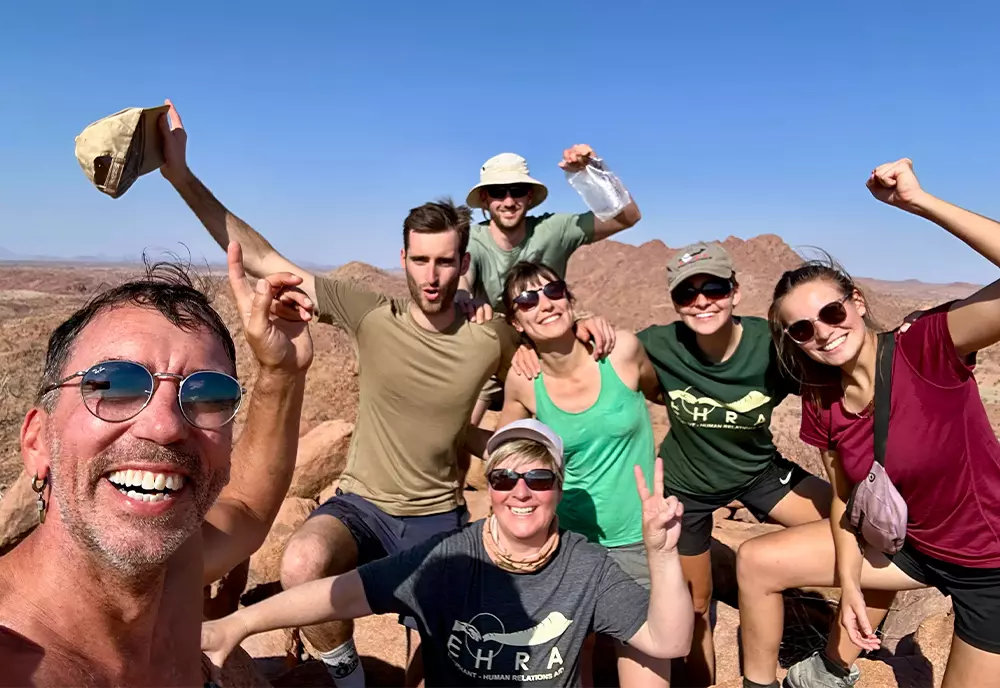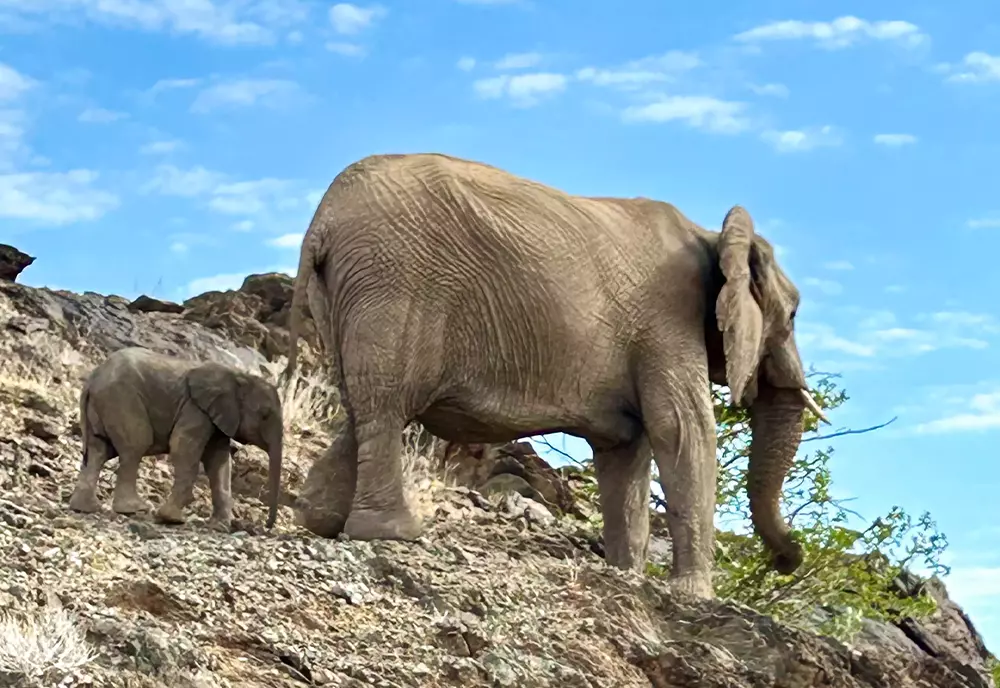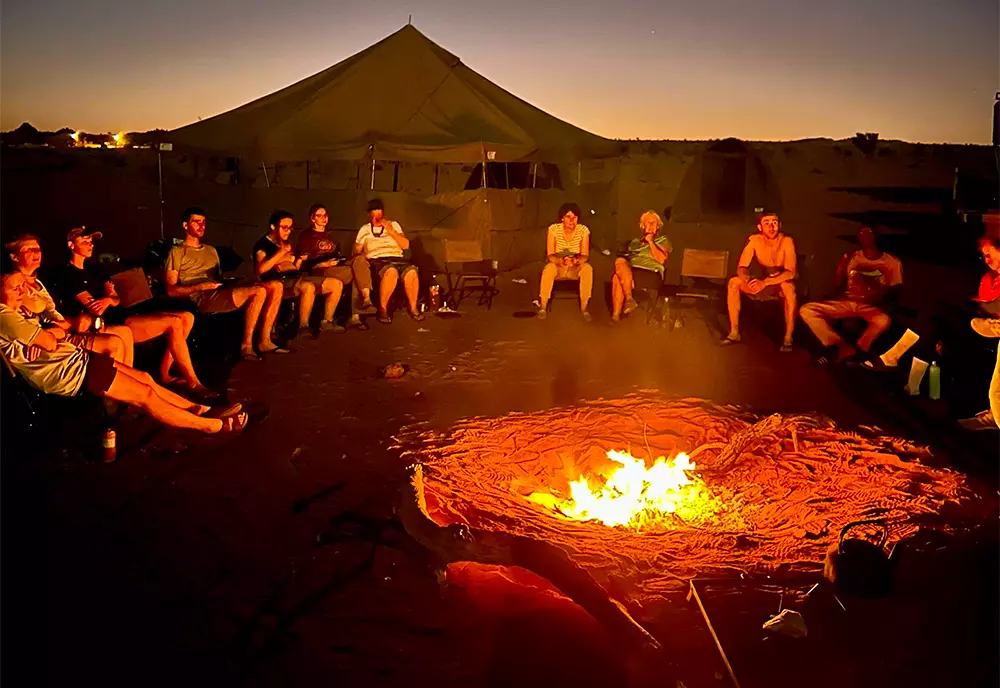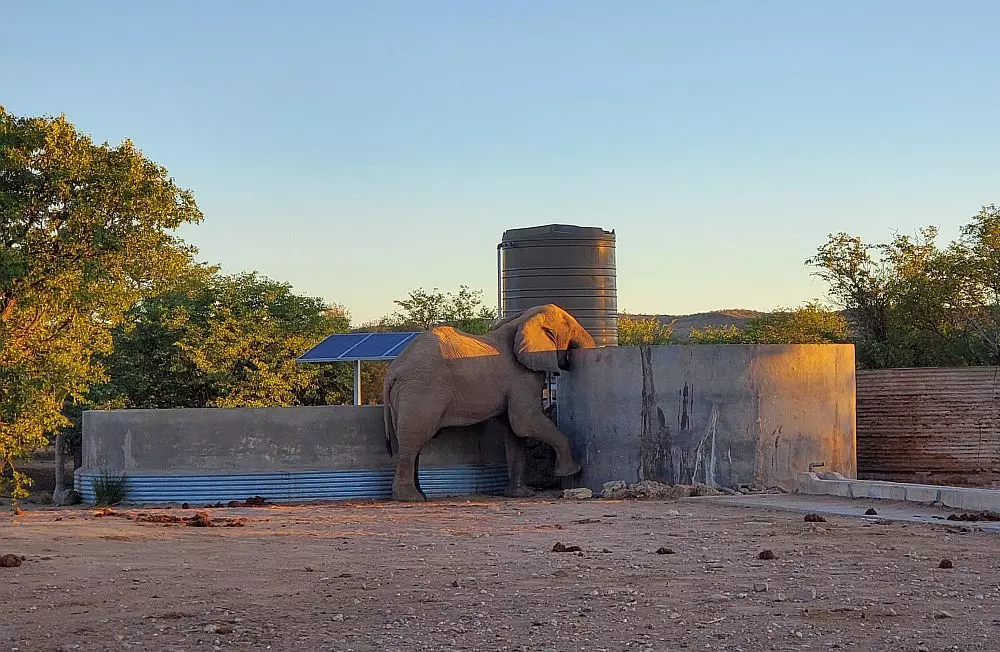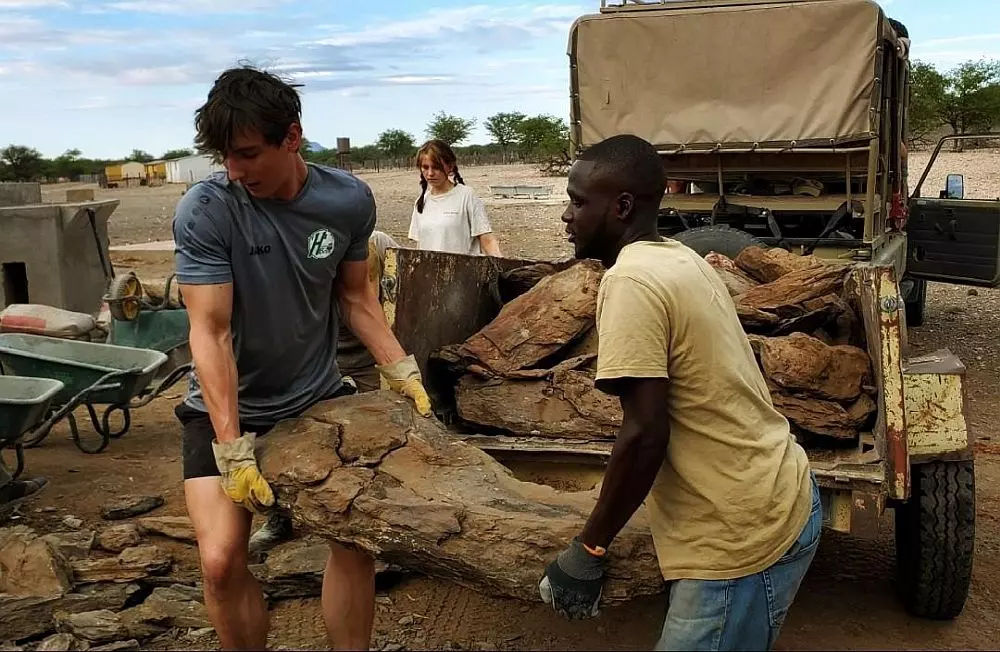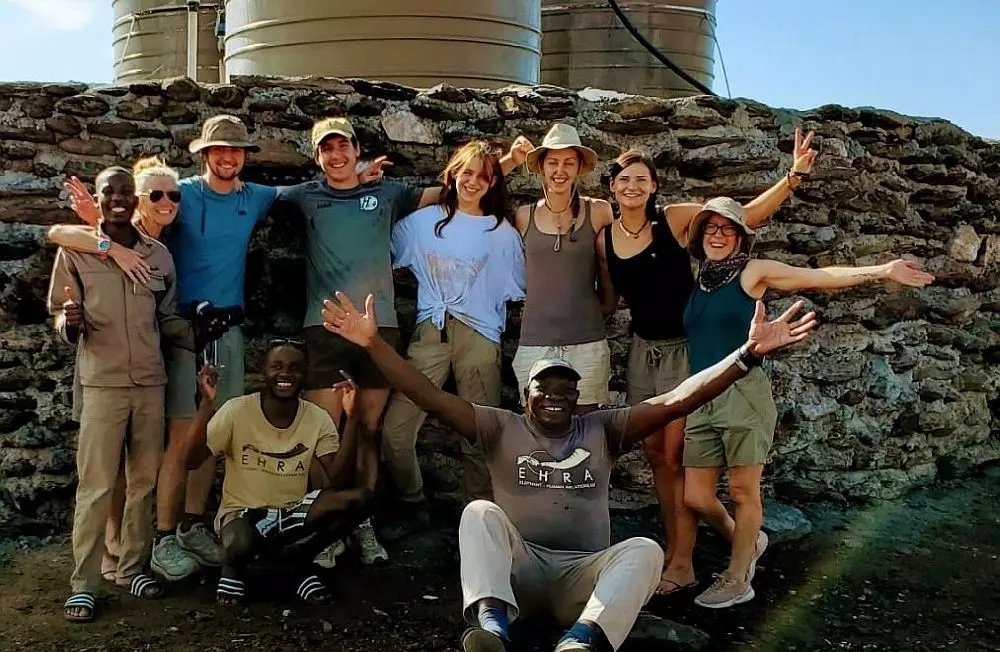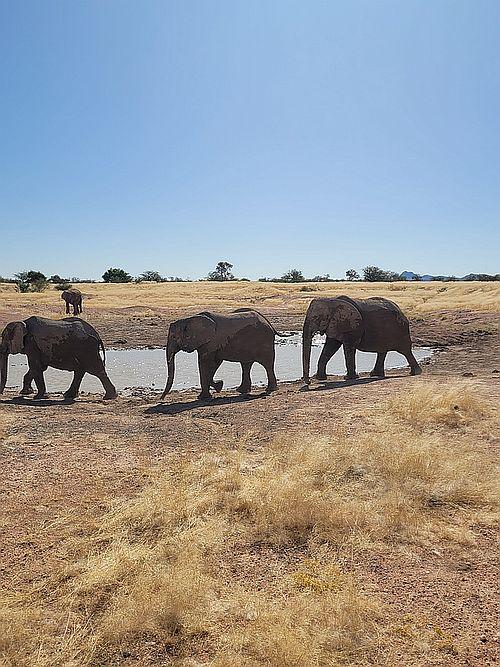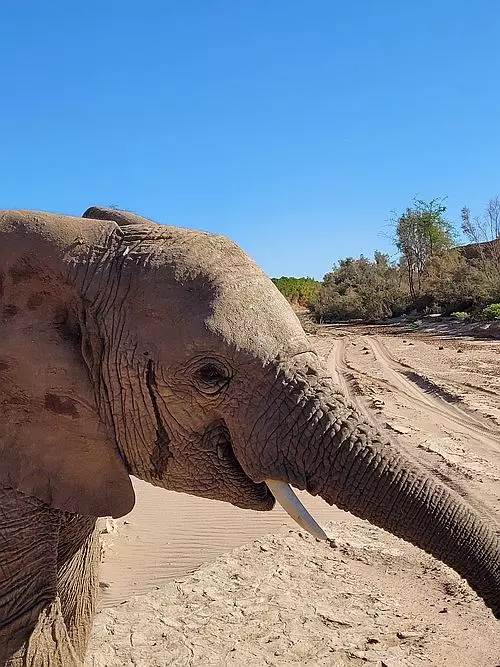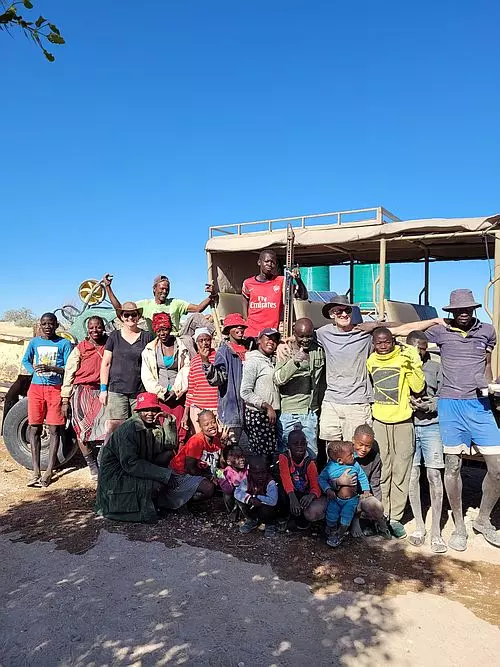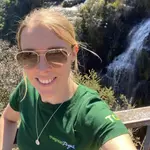

Desert Elephants in Namibia
Go in search of the stunning desert elephants of the Namib Desert and help reduce human-animal conflict on this incredible volunteer project.
Speak To A Travel Expert
Activities
With two main focuses of protecting the wild desert elephant population and supporting the local communities in the region, this project has been designed to work in two-week blocks. One week will focus on elephant patrols and tracking where you will gather crucial data for the project and Namibian government to utilise, and the other week will focus on construction tasks and working with the community.
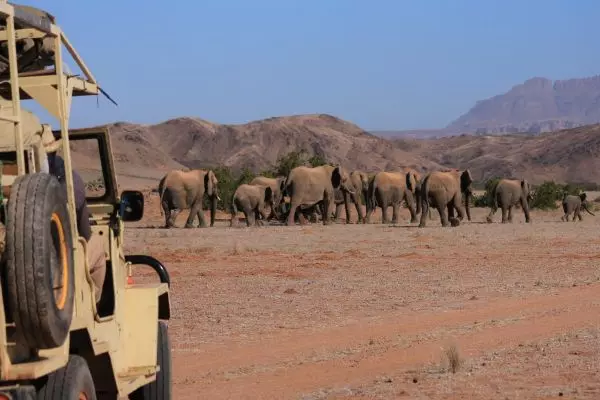
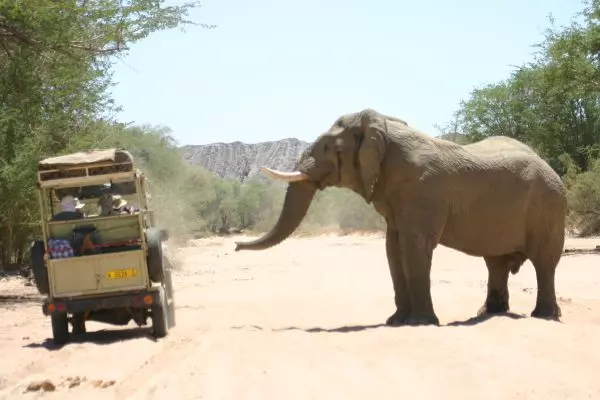
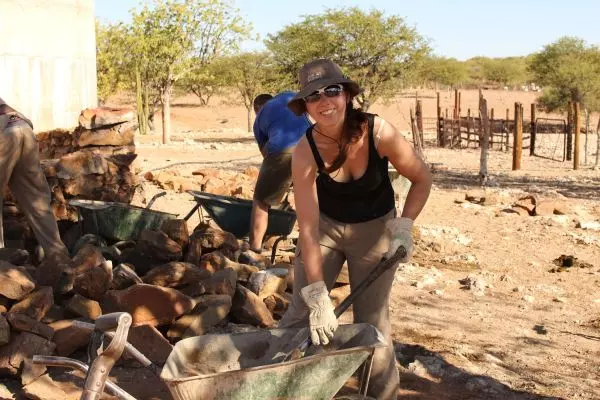
Itinerary
The following itinerary is subject to change depending on the needs of the project and what follows is simply a rough guideline. A minimum duration of 2 weeks is required, though durations of up to 12 weeks are available. If joining for longer than 2 weeks, your itinerary will repeat.
Durations & Prices
Accommodation
Accommodation
Your time spent in the desert will see you truly immersed in the Namibian wilderness as you camp beneath the stars! Whilst at base camp, you’ll be staying in a treetop platform, and there are toilets and hot showers available. There are also two elephant drinking dams on this campsite, and the elephants often wander past so make sure you keep your eyes peeled for this! During build week, you will set up a more permanent camp where you’ll return each day after your construction tasks, and if there is enough water available, a basic shower may be set up for use. On patrol week, however, you will set up a new camp each night depending on where the elephants decide to lead you, making for a truly wild camping experience!
Your first and final night’s accommodation in Swakopmund is not included and you can book a hotel of your choosing, however, we recommend staying at the A La Mer Hotel, as this is where the briefing is held on the Sunday you arrive, and we can book a room here for you.
Meals & Beverages
Whilst on the project, three meals will be provided each day which will all be cooked over the open campfire. You will be split into small groups, and each day a different group will use the recipes provided to cook for the rest of the team. You can expect to enjoy a variety of different meals varying from local cuisine to some western-style meals. Food items are purchased each week when the team travel to the town of Uis, so special dietary requirements such as vegetarian and vegan diets can be catered for. You can also purchase additional snacks and drinks when you visit Uis during your stay.
Project Details
When Is The Best Time To Volunteer?
There are 2 seasons here which offer very different but incredible experiences:
January – May: This is the summer, and during these months you can expect temperatures of around 30°C (86°F) in the day and 17°C (63°F) in the evening. This is also the rainy season which is a wonderful experience in the desert as rivers can flash flood and you can see how the desert changes overnight. The elephants tend to move closer to the farms at this point which can cause a lot more conflict meaning more patrols and meetings with farmers.
June – December: During these months, the elephants go back to the riverbeds until the rains start again in January. This means patrols are mostly in this beautiful area. It must be noted that whilst daytime temperatures are still hot, the night can get rather cold, falling to around 7°C (45°F).
Getting There
You will need to arrive into Swakopmund on your project start date (Sunday) and there are 2 options to do so; you can either arrive into Walvis Bay Airport and take a 20-minute transfer to your accommodation, or you can arrive into Windhoek International Airport and take a 4-hour overland transfer. If you plan to arrive into Windhoek Airport, please ensure your flight lands no later than 11:30am to ensure you have time to take the transfer to Swakopmund. Transfers from either airport are not included but can be arranged for you and be paid for on arrival.
Your first and final night’s accommodation in Swakopmund is not included. We suggest staying at the A La Mer Hotel, where the briefing will be held on the Sunday of your arrival. We can reserve a room for you, and you can pay for your room on arrival.
Visa Requirements
Citizens of most countries, including the UK, USA, Canada, Australia, Germany and most of those within the EU, will need to obtain a Visa On Arrival to enter Namibia.
This visa can be obtained online prior to travel and will permit a stay of up to 90 days. You will need at least 3 blank pages in your passport (which must be valid for a period of at least 6 months from your date of entry) for the immigration officials to use, and you must pay the visa application fee of N$1,600 (approximately $95).
If you are unsure of your individual visa requirements, we recommend speaking to your local Namibian embassy at least 2 months prior to travel.
Fitness & Skills
The construction tasks undertaken on this project involve long hours of physically demanding work, often in high temperatures. Therefore, a moderate to high level of fitness is required to take part. There are no specific skills or experience required, just a commitment to the project, a passion for elephants and a willingness to work as part of a team!
Vaccinations
There are no specific vaccinations required to join this project; therefore, we recommend consulting your GP/doctor or a travel clinic and following their advice on vaccinations for travel. You can also find helpful advice and information on the Travel Health Pro website.
Gallery
News & Stories

Rainbow in the Desert
UPDATE | Feb 2026
One of the volunteers recently captured this beautiful rainbow arching over base camp on their final day, a perfectly fitting send-off after days of hard work, learning, and unforgettable time spent out in the field!

Patrol Life at Night
UPDATE | Nov 2025
There's nothing more magical than nighttime in the desert during patrol week. When the sun settles and the stars illuminate the sky, volunteers will come together around the fire, making the desert feel a little more like home.
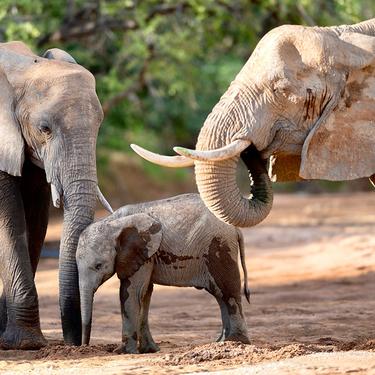
Baby Eve Learning to Find Water
UPDATE | Sep 2025
This week, volunteers watched as young Eve learned the art of finding water from the older females, a lesson that will help her survive in the desert for many years to come, and one she will pass on to other baby elephants in the future.
Reviews
This was one of the most rewarding things I have ever done in my life, such a great experience and a truly beautiful one. From start to finish the people and the organisation were impeccable so well organized, I would certainly go back in an instance, building the wall and been at one with nature, sleeping under the stars meeting amazing like minded people too, just awesome. Thank you to the project and the great projects team, you are all truly amazing.
Elephants plus Africa plus volunteering equals an unparalleled experience. Six weeks spent volunteering and there was not one boring day in that time. I worked, sweated, laughed, cooked, fell asleep in my sleeping bag pleasantly exhausted each night and woke with a delighted new excitement about what the day would bring. I made so many new friends including the seasoned and young, enthusiastic staff who worked tirelessly to make this experience one that I will want to relive. My time on the project taught me to be more compassionate, patient and open to an all important world which allowed elephants to live a life in tandem with humans. I will return.
I would definitely recommend this trip to anyone interested in wildlife and conservation. This is not a holiday. It is hard work. If you are not a team player or are afraid to get your hands dirty, this is not for you. Everyone has to muck in. We were up at 6.30 every day and the days were long. We were carrying rocks, mixing cement and building a wall. This is Africa. You will get hot, sweaty and dirty. You have to get used to toilets and showers in the Bush. Your hard work is paid off in the second week when you are on patrol and see the elephants. Two weeks was enough for me. Some volunteers stayed longer. It is a very rewarding and enjoyable experience. I only wish I had done it earlier.
What's Included
- Accommodation (except in Swakopmund on the first and final night)
- Three meals per day
- Return transfers between Swakopmund and the project site
- Full orientation and support from the project managers
- A monetary contribution to the project
What's Not Included
- Flights
- Soft and alcoholic drinks
- Airport transfers - N$350 each way (approximately $20)
































